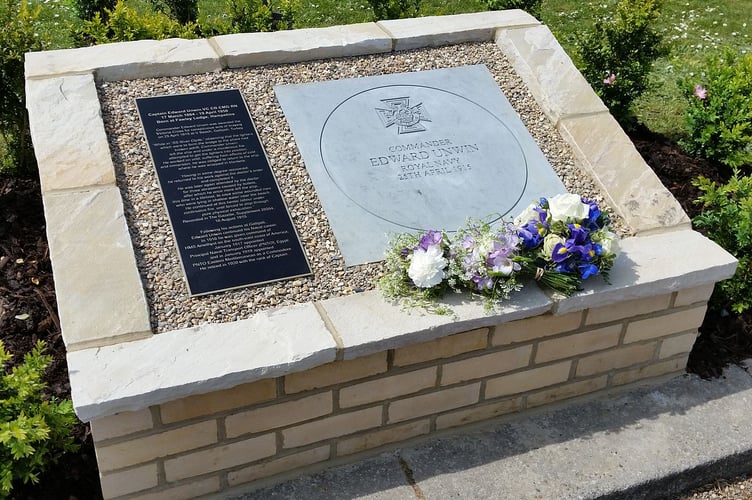In the last of our series of articles celebrating local Victoria Cross recipients, we tell the story of Grayshott-buried Edward Unwin and his acts of valour at Gallipolli in the First World War.
Unwin was born in Fawley, Hampshire, in 1864 and began his long career on the waves aged 16 - serving 15 years in the Merchant Navy before switching to the Royal Navy in 1895.
He served in Benin, at the Second Boer War and the South Pacific before retiring in 1909 - but was recalled into service shortly before the outbreak of the First World War in 1914.
Unwin spent time on the battleship HMS Iron Duke and took command of torpedo gunboat HMS Hussar in 1915, before the most enterprising episode of his career.
During planning for the Gallipolli campaign, the then-51 year old Captain Unwin floated the idea of beaching the 4,000 tonne collier SS River Clyde to allow 2,000 troops to be landed on one of the key invasion beaches.
The plan called for a steam hopper to form a bridge from the ship to the shore, but when this was swept away by the Dardanelles current, Unwin dived overboard and under “murderous fire” manhandled two lighters into position to form the bridge.

Despite being treated for exhaustion and bullet wounds, he repeatedly returned to rescue wounded men under continuous fire, until forced to stop through exhaustion.
The action earned him the Victoria Cross, and his bravery continued at the Battle of Sari Bair in August 1915, where he dived overboard to save a drowning soldier, prompting a Lieutenant General to remark: “You should send him home; we want several little Unwins.”
Unwin rose to the rank of Commodore before retiring in 1920. He died in 1950, and is buried in Grayshott. His Victoria Cross is on display at the Imperial War Museum, London.
.png?width=752&height=500&crop=752:500)
.png?width=209&height=140&crop=209:145,smart&quality=75)
_in_France_1939-1940_O812.jpg?width=209&height=140&crop=209:145,smart&quality=75)
Comments
This article has no comments yet. Be the first to leave a comment.